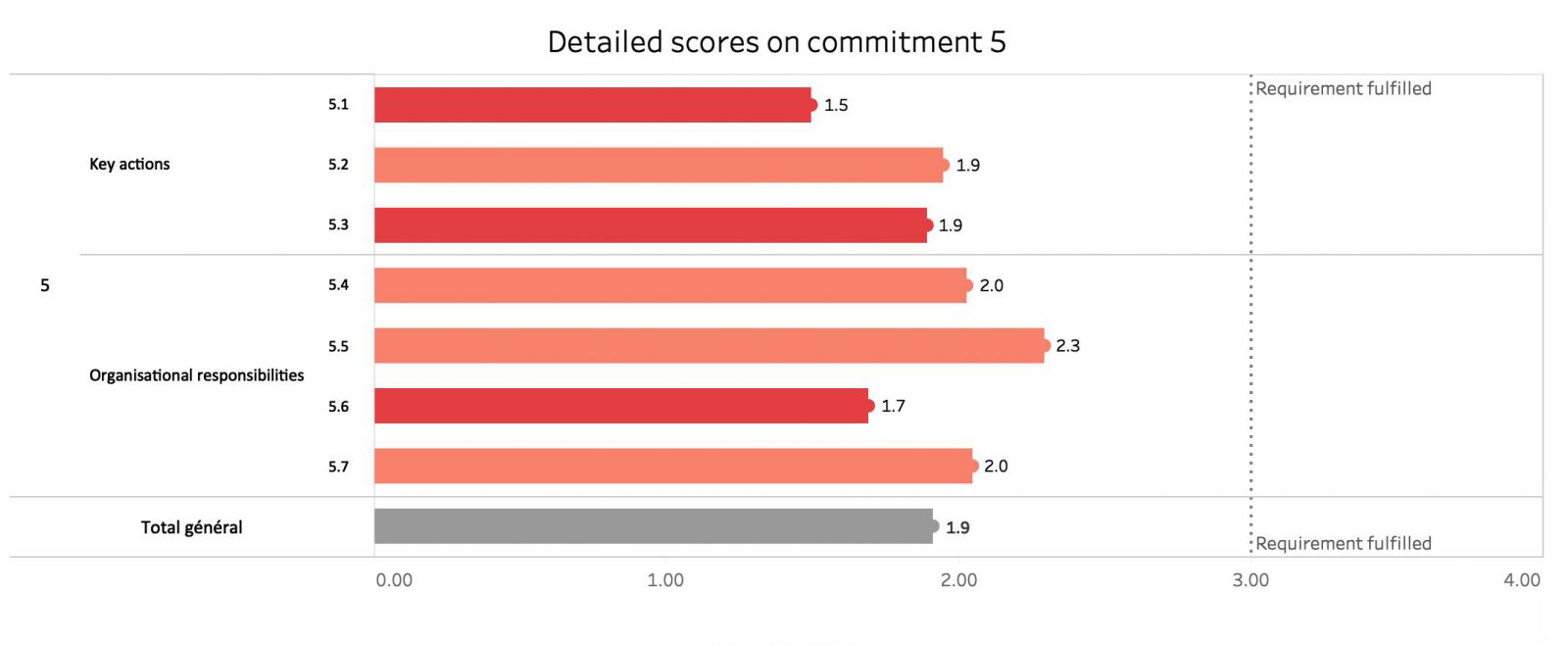Exploring the CHS Verification Data: Why Commitment 5 is Scoring Low?
In recent months we have communicated several times about an important finding from our verification data: commitment 5 of the Core Humanitarian Standard on Quality and Accountability (CHS) is systematically scoring low, meaning that populations associated with the delivery of aid do not have access to functioning, responsive and safe complaints mechanisms. What does a closer look at the data tell us?
When we disaggregate the seven indicators relating to commitment 5, we see a notable difference in the performance of key actions (what has to be implemented at the project level), and organisational responsibilities (the tools organisations should have in place to ensure the systematic implementation of the key actions). As for many other CHS commitments, actions score lower than responsibilities. Or put another way, the most important weaknesses relate to knowledge and implementation of the existing tools, guidance and policies.

The analysis of those key actions shows that this implementation is, for the three indicators of commitment 5, still anecdotal and inconsistent across the organisations. These three indicators relate to:
- the consultation and involvement of communities in the design and implementation of the mechanisms put in place;
- the information around, and the accessibility of the mechanisms put in place; and
- the timely, fair, and appropriate management of complaints raised by the communities and people affected.
Looking at the tools that should support the implementation of adequate complaints mechanisms, it appears that organisations do not systematically have the guidance in place to ensure that “communities and people affected by crisis are fully aware of the expected behaviour of humanitarian staff, including organisational commitment made on the prevention of sexual exploitation and abuse” (indicator 5.6).
The solution can’t simply be with the development of new tools; perfect tools don’t automatically result in perfect complaint mechanisms at the project level. Tools and guidance should incorporate all critical aspects composing a good mechanism, but their impact will always be contingent to the extent to which they are known and implemented by the staff working in direct contact with the people affected by crisis.
The evaluations made by organisations to verify how well they perform against the CHS trigger major efforts to improve on the weak areas identified, including complaints mechanisms. To facilitate and support those efforts, the CHS Alliance is promoting exchanges and learning between our members through various mechanisms. For example, during the last learning event organised in London, in November last year, several organisations came forward and shared their best practices. In 2019 the CHS Alliance will build on this collaboration, to help drive improvement of the sector as a whole in meeting commitment 5. Affected populations receiving aid deserve no less than access to functioning, responsive and safe complaints mechanisms.
If you have further questions, get in touch at amuratet@chsalliance.org.

